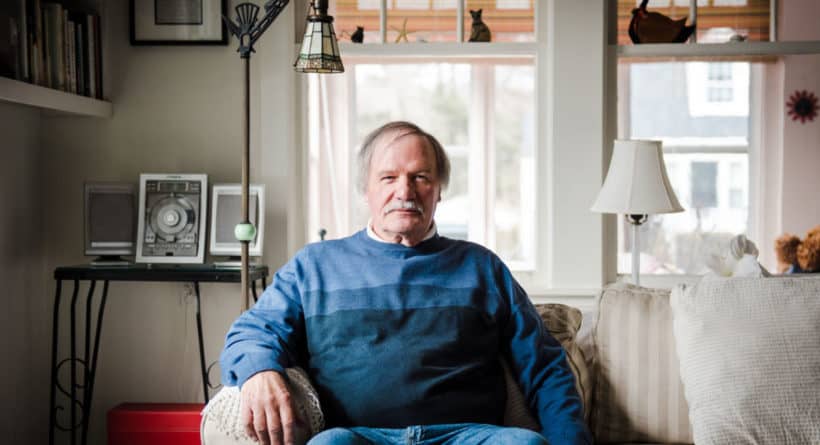Local writer John Robinson came to Portsmouth 40 years ago in a “last ditch effort” to find success in the literary world. Born and raised in Chicago, he spent several years in Edinburgh, Scotland, as well as the Spanish island Ibiza, but he felt he wasn’t getting anywhere with his writing. After graduating from the University of New Hampshire with a masters in writing, he rented his first house on Cass St., and has called Portsmouth home ever since.
Now 72, Robinson says he is at the height of his career. “I don’t have a period in my writing career that’s been this prolific,” he says. “It’s terribly exciting and it’s fun to see these things get published and the impact they have on other people.”
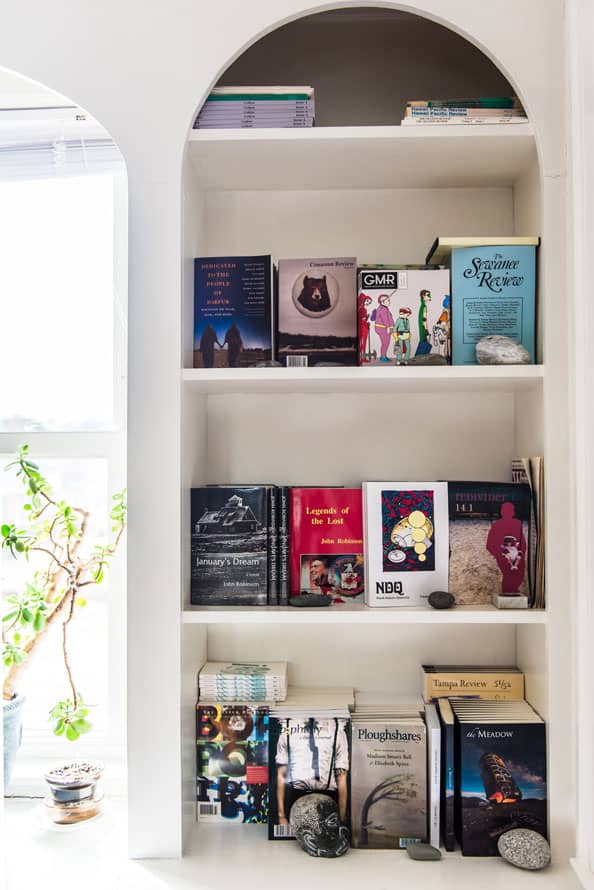
Robinson has averaged three publications per year over the last eight years in various literary journals. He’s currently working on a series of memoirs and short stories.
Though Robinson describes the two years he spent writing in Europe as a “massive failure,” he has discovered that people are interested in the subject of failure. Realizing he could write about those experiences was a breakthrough that resulted in a series of memoirs collectively titled “The Hungry Years.” In a story called “Notes on the Bohemian Life,” he writes about how literature saved him during his darkest times.
“I would recite great passages from literature as I walked the cold, dark streets of Edinburgh, trying to get inspired,” he says, quoting from the story. “I remembered those great passages, and I was electrified and restored.”
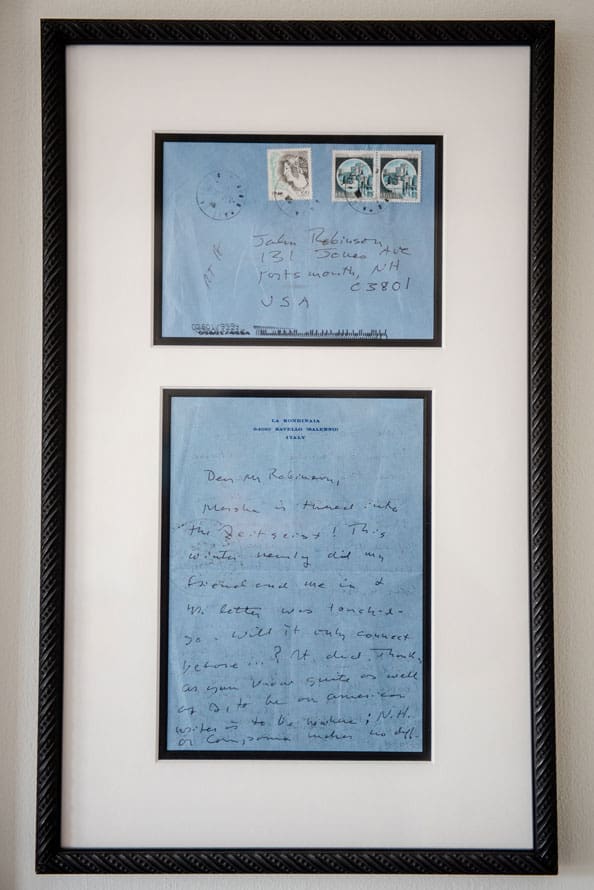
A framed letter from Gore Vidal.
The first city he ever fell in love with, he says, is Rome, the one-time home of his favorite writer, Gore Vidal, from whom he once received a handwritten letter. He spent a summer traveling to Italy and Greece, where he found a particular appreciation for the Greek island Corfu.
But, eventually, Robinson felt he had to make a change. When he moved to Portsmouth, he found it was an ideal setting for artists.
“Market Square was incredible,” he says. “The Jarvis restaurant, which all these people would grab the bus near in downtown, they would park their suitcases in front of the restaurant and it had this wonderful feeling of travel to it. These old women would go and eat at the lunch counter that was there from the 1950s. And then you’d go to Green’s Drugstore with this green marble counter and get frappe malts that reminded me of my youth. … God, it was just one extraordinary place after another.”
Robinson now lives in his own Portsmouth home with his wife, Marsha. Though he acknowledges the city has changed, he still appreciates its beauty, and it’s the place where his work has flourished.
Robinson’s small home study offers a thorough timeline of his life, work, and travels.
“My study is inspired by the British writer Robert Graves, who said that one thing you should have in your workspace is all the things that you made. They’ll give you the right vibes and make you feel like you can create anything,” he says.
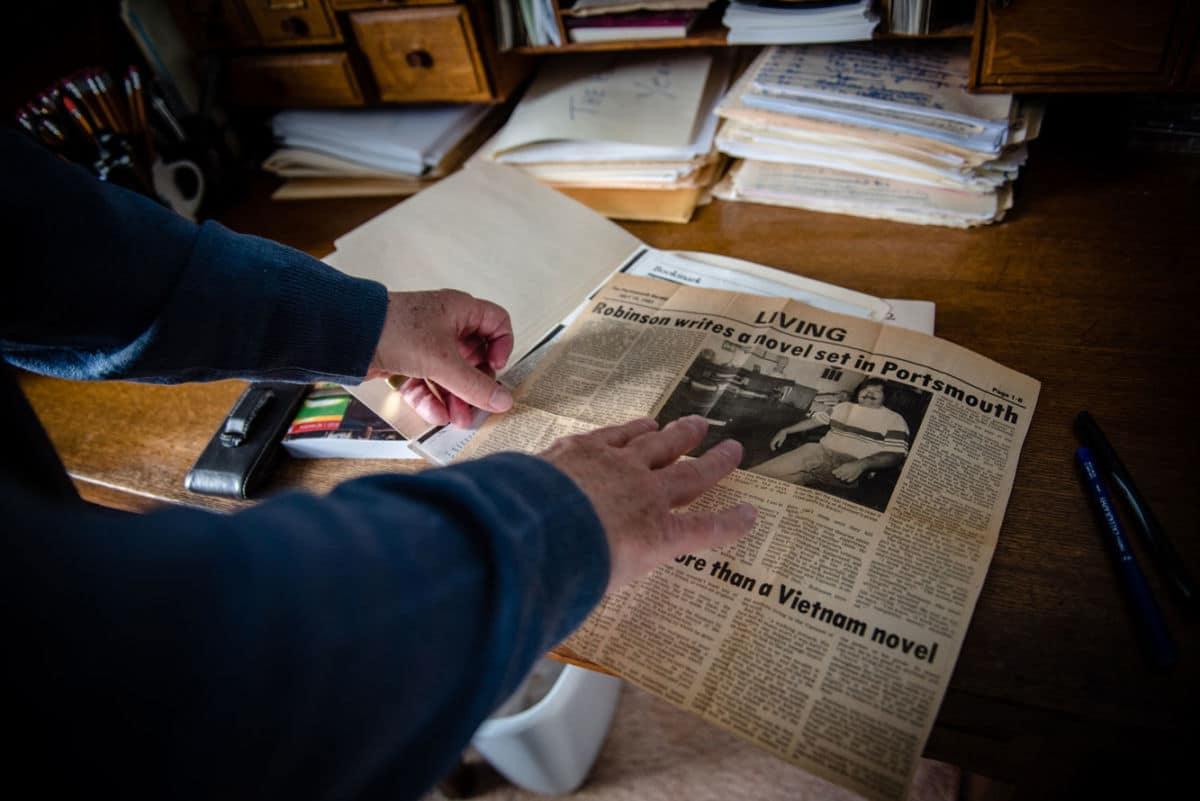
The walls feature photographs of his life in Europe, framed excerpts of his earlier works, a portrait drawn by a former student, a bust of Aphrodite from Spain, and a 2,000-year-old Roman pot, which a fisherman caught in his net and gave him. He even has the very first thing he personally made at the age of 6: a plaster imprint of his hand, which he made for his father and found in his tackle box as an adult.
There’s also a display of Robinson’s work, and a full wall of his favorite books, which he refers to as the “Robinson Wall.”

He calls another Portsmouth locale his second office: The Golden Egg, where he goes twice a day to enjoy his meals and see the friends, writers, and fellow diners who make up his “extended family.” He says he’s gone out for breakfast almost every day since October of 1960, calling it the most joyous way to start a day, with a newspaper and a great meal.
“I feel very literary being in places like that,” Robinson says.
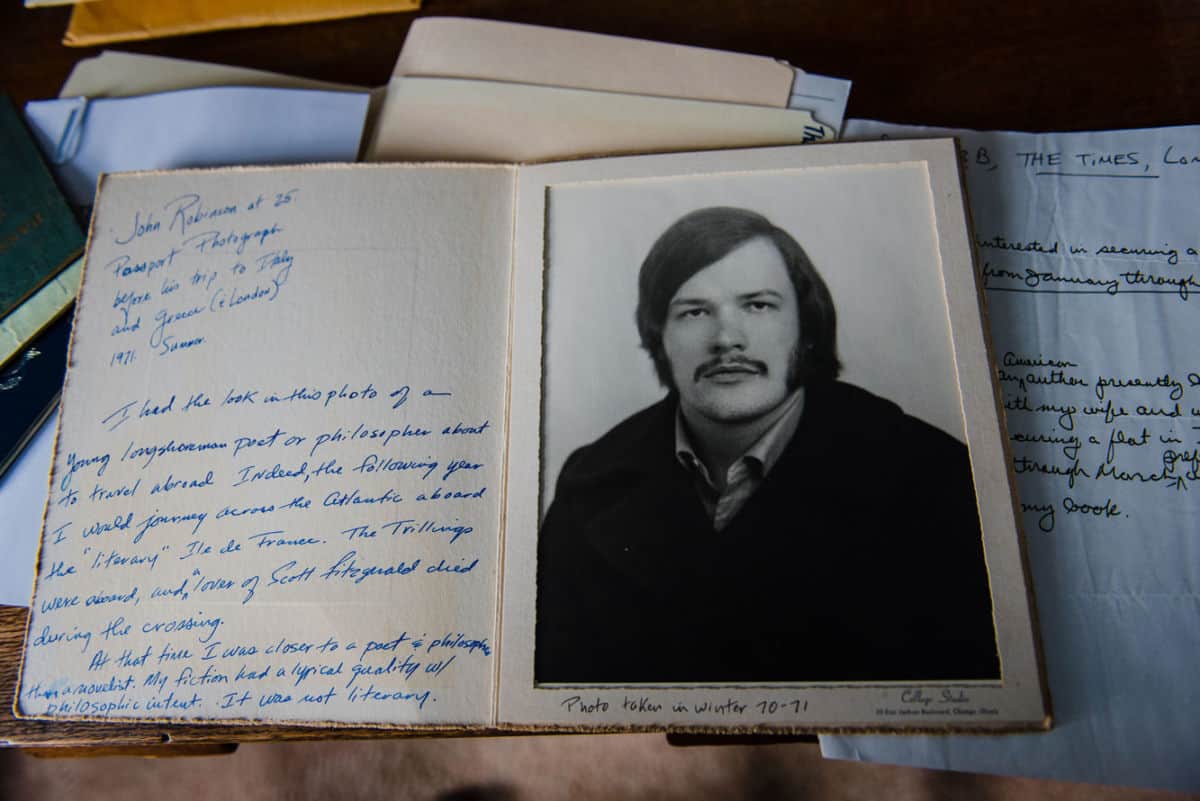
After producing work that has been translated into 32 languages, Robinson reflects on how he’s changed as a writer. His earlier pieces, he says, were about darkness. Today, they’re focused around beauty.
“In my now 50-year career, I can’t say that it was always wonderful. It was brutal, very difficult,” he says. “They said, ‘If you’re going to get involved in something like this, you’re going to pay a terrible price. It’s emotionally damaging.’”
But, he adds, it’s what he did for love. And, for Robinson, it has been worth the price.
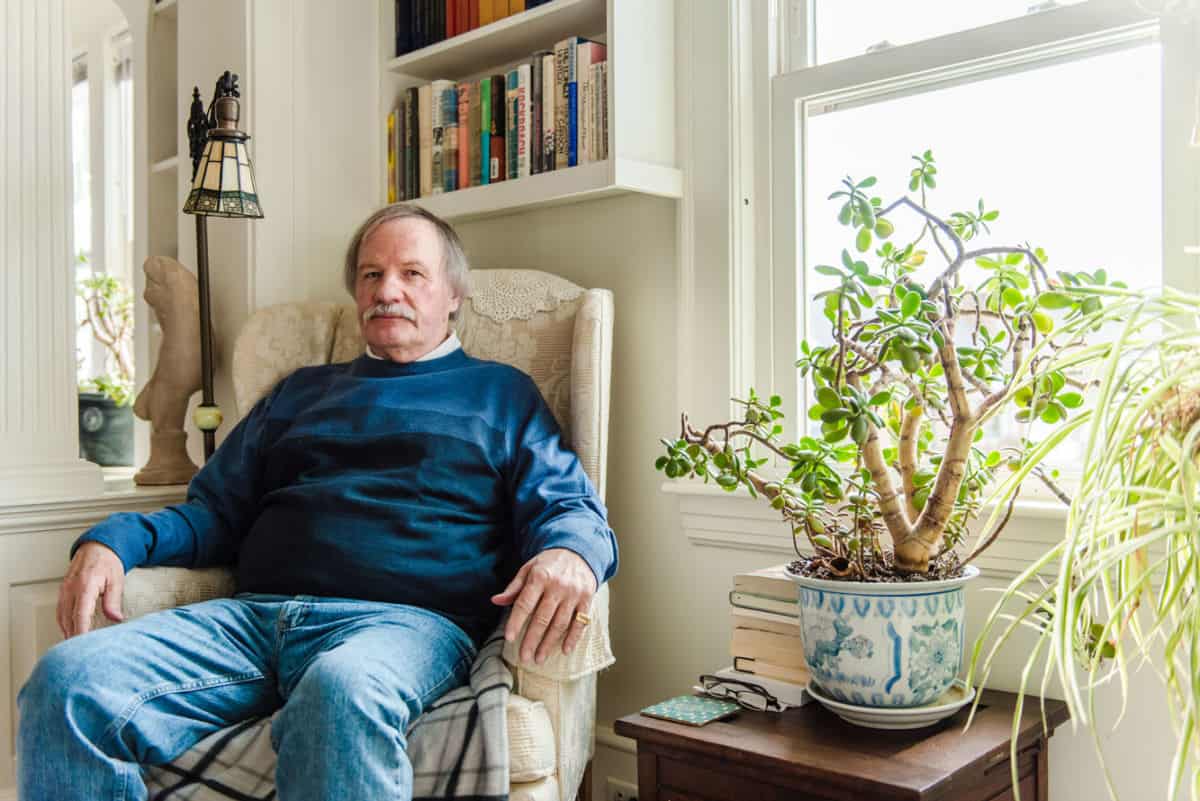
To read past installments of Open Doors, click here.

